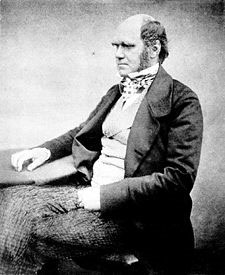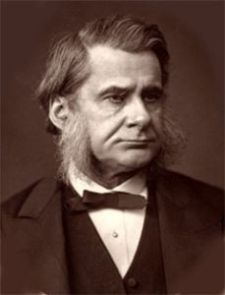Charles Darwin had little time for the scientific, theological and moral controversies
engendered by the publication of his Origin of Species in 1859. Not so
Thomas Henry Huxley (1825–1895), who leapt to the fray, even dubbing himself
‘Darwin’s bulldog’.
Darwin called him, ‘My good and kind agent for the propagation of the Gospel—i.e.
the devil’s Gospel.’
It was Huxley, not Darwin, who enraptured and outraged audiences in the 1860s with
talk of our ape ancestors and cave men. London turned out—from cardinals to
Karl Marx—to be tantalized and tormented by his scintillating lectures. ‘Bushy-bearded
labourers with blistered hands flocked to his talks on our ancestry. He drew the
sort of crowds that are reserved for evangelists or rock stars today.’
‘Out of his provocations came … the West’s new faith—agnosticism
(he coined the word).’3
Youth and self-education
Thomas was born in Ealing village, near London, in 1825, the seventh of eight Huxley
children. Neglected by his father, he grew up in poverty, with only two years of
formal schooling. Living in the industrial squalor of the 1840s, where the Church
was a rich man’s luxury, he sought redemption through self-education.
At the age of 12 he read James Hutton’s Theory of the Earth and had
his first encounter with anti-biblical geology. An avid reader of history, science
and philosophy, he taught himself almost everything he knew until he entered Charing
Cross Hospital medical school.4
He put himself through Part 1 of the Bachelor of Medicine exam at London University,
winning the gold medal for anatomy and physiology, but did not present to sit Part
2.
He then became Assistant Surgeon (‘surgeon’s mate’) on HMS Rattlesnake
for a southern oceans surveying voyage (1846–1850). Although Huxley had
no formal university degree,6
the publishing of his researches on the structure of various marine invertebrates
from this trip secured his future acceptance by the British scientific community.7 In 1851, at age 25, he was
elected a Fellow of the Royal Society (F.R.S.), which also awarded him its Royal
Medal in 1852, a year before Charles Darwin received the same honour. Continue at Creation Ministries


No comments:
Post a Comment